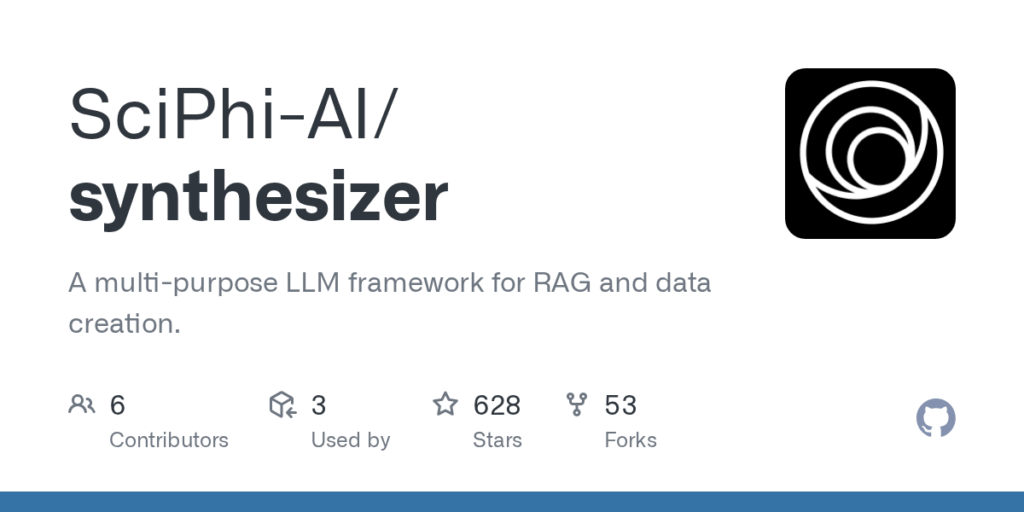synthesizer
Basic Information
Synthesizer is a developer-focused, multi-purpose LLM framework designed to generate custom synthetic datasets and to enable retrieval-augmented generation workflows. The README shows the project provides tooling and example scripts to synthesize question-answer pairs, run RAG evaluations, and integrate retrieval providers so that generated outputs can be anchored to real-world sources. It supports multiple LLM backends including OpenAI, Anthropic, vLLM, and HuggingFace and exposes a Python API surface for assembling RAG contexts and requesting completions. The repository includes command-line scripts such as a data augmenter and a RAG harness, a published pip package name, and links to documentation and community channels. Note that the project was archived and made read-only in February 2024, so the codebase and docs remain available for reference but are no longer actively maintained.








